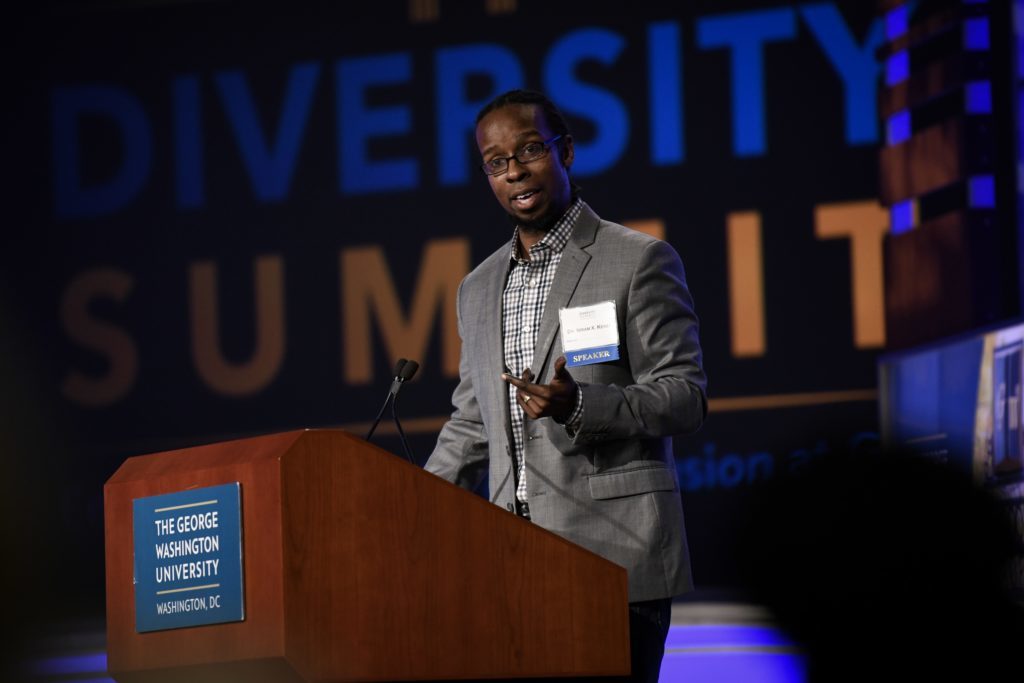The University’s third annual diversity summit kicked off Tuesday with an address on the history of racial disparities in America.
Keynote speaker Ibram Kendi, a professor at American University and the founding director of the Anti-Racist Research and Policy Center, traced the history of racism in America at a packed Jack Morton Auditorium, saying that the United States has consistently struggled with racial inequalities, which are often seen in universities that underrepresent minority groups.
University President Thomas LeBlanc delivered opening remarks to the crowd, calling GW a microcosm of racial issues across the country. He said the diversity summit, organized by the Office for Diversity, Equity and Community Engagement, comes at an ideal time to reflect on race relations at GW, especially after a racist Snapchat post caused an uproar on campus two months ago.
“As an institution of higher education, we also have the responsibility to serve as an example to others on what diversity, inclusion and accessibility should look like,” LeBlanc said.
Kendi’s speech was the inaugural event of GW’s “Race in America” speaker series, one of the initiatives LeBlanc announced in February in response to the Snapchat incident.
Kendi, who is also a New York Times best-selling author for his book, “Stamped from the Beginning: the Definitive History of Racist Ideas in America,” said the election of President Donald Trump after the election of the first black president was a good example of racism persisting after racial progress is made. Trump has often been criticized for promoting racist and xenophobic ideals both during his campaign and as president.
“The nightmare oftentimes follows the dream,” Kendi said.
The diversity summit began the day before the 50th anniversary of Martin Luther King Jr.’s assassination, which Kendi referenced throughout his speech.
“It’s important for us, especially for those of us who are committed to inclusion and diversity, to have a very clear sense of what a racist idea is and what a racist policy is,” he said.
Kendi said the purpose of his book, which delved into the history of racist ideas in the United States, was to clarify how these polices persist because they are often defended with religious, scientific or statistical backups.
“That’s not new – slaveholders, segregationists, really every racist idea that I chronicle and said from the beginning, were making the case that they were not racist,” he said.
He said that because of institutionalized discriminatory policies and the idea that “there is something wrong and inferior about a particular racial group,” racial disparity remains a difficult topic to tackle.
He said Americans needs to call upon their peers, who don’t consider themselves racist, to examine why discriminatory sentiments still exist – something he said is accomplished by understanding the outcome of a racist policy rather than its intent.
“If a policy leads to a disproportionately low number of black faculty or women students in a particular department, then that policy is racist, that policy is sexist,” he said. “When we think about our policies and we recognize outcome and focus on outcome, it allows us as communities and as a nation to really get at those things that are actually leading to these disparities.”





